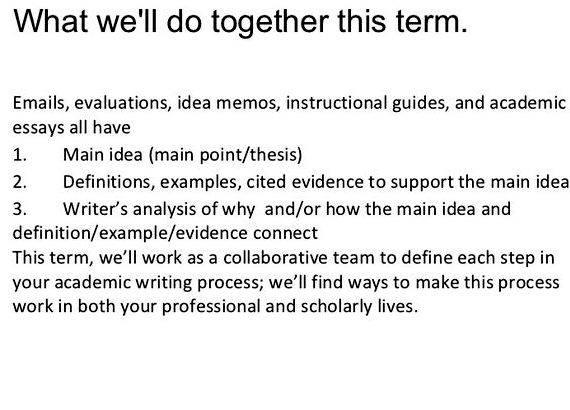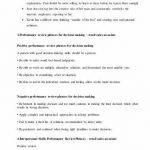Book Publishing
Traditional Publishing
Self-Publishing
Electronic Publishing
POD & Subsidy Publishing
Promotion/Social Media
General Promotion Tips
Book Reviews
Press Releases
Blogging/Social Media
Author Websites
Media/Public Speaking
Booksignings
“Write every day.” It’s common advice among writers. Yet some writers may wonder if it’s really worth the effort. Factors such as writer’s block or hectic schedules can make it difficult for one to find time to write every day.
Writing every day, however, does more than simply instill the discipline to write at will, rather than just when inspiration strikes. It offers several other very important benefits:
It Boosts Your Creativity. After writing every day for a week or two, you will find your creativity beginning to flourish. Ideas will pop up from out of nowhere. Anything from a newspaper article to a picture will inspire you. Your creative self will feel more comfortable in being allowed to churn out any idea, no matter how small or obscure. Exercising your creative muscle will allow it to be stronger than ever before.
It Increases Your Confidence. Many writers struggle with the effort of writing down a single word. Fear of rejection, poor writing and perfectionism can be numbing. Instead of dealing with these fears, some writers elect not to write at all. Some only write when they are inspired. But good writers do not rely on inspiration to help them overcome these fears. They rely on themselves.
Writing something every day, no matter how little, will help you overcome these fears. It will cause your confidence to escalate, because each day that you actually write something is a day when you have faced your fears. Each day that you write helps you prove to yourself that you don’t need inspiration to get you started.
It helps give you the confidence that you are a writer who can write anything you want, any time you want.
It enables you to experiment with your writing ability. Most writers usually pursue just one form of writing: fiction, nonfiction, songwriting, scriptwriting, children’s writing or business writing. Writing every day gives you the opportunity to stretch your writing muscles by trying something different. If your time is limited, try writing a poem or a song. If you usually write magazine articles, try writing a short story or essay, which will usually require less research than you’re used to. If you write novels, take a break from your work-in-progress and test your skills on a technical article, greeting card verse, or short-short story. If you’re waiting for an answer to a query, spend that time writing research logs or practice interviews.
It Helps Overcome Perfectionism. Don’t fall into the trap of thinking that, with only a little time available to write each day, you should make the “most” of it and write only your best work. No writer can write something worthy of a Pulitzer Prize every single day. Rest assured, there will be days when all you write are jumbles of confusing words and short stories that lack every single necessary element of fiction. These episodes of “poor writing” are not wasted moments. Instead, the very fact that you are writing anything at all is a reminder that you are willing to write even when your creativity is at its lowest.
You are writing. even if what you write will remain hidden in your desk drawer or is headed straight for the trash. Don’t let perfectionism get in the way of your desire to write something! While perfectionism helps push you to write well, it can also hinder your desire to create by convincing you that everything you create must be of “value.” In reality, every single thing you write is of value, because it’s yours, and is your testament of overcoming your fears.
It Combats Writer’s Block. Writer’s block is another reason why a writer may neglect to write each day. While this problem can be crippling, it’s not impossible to cure. I’ve heard many tips on beating writer’s block, and here are a few that I’ve found most helpful:
- Read articles on writing. I typically read one article on writing every day, usually on the Internet. I then write down my own version of the article, my thoughts on it, or a letter to the editor about how the article helped me. For example, I read an article about five things an entrepreneur can do to have a stronger presence on the Web. I turned this into five ways writing has helped my life, five ways to beat writer’s block, five pieces of writing advice that have helped me the most, etc.
Writing every day instills in the writer the discipline to write at will. It helps build creativity and skil. It helps writers overcome their fear of writing poorly (and therefore “wasting time”). The more you flex your writing muscles and strengthen your vocabulary, the stronger your writing will be, and the stronger your confidence in your writing will become!
Find Out More.
The Key to Success: Write More!. by Lee Tobin McClain writing-world.com/business/writemore.shtml 2004 Dana Mitchells
This article may not be reprinted without the author’s written permission.
Dana Mitchells is the Internet pen name of the writer Dawn Colclasure. Her work has appeared online in Worldwide Freelance Writer, Writing-World, Absolute Write, and Writing Etc., among others. She has been published in magazines and her poems have been published both on- and offline, in magazines such as HIP Magazine of Connecticut and Skyline Literary Magazine, and online in EOTU Ezine of Fiction, Art and Poetry, Panic! Poetry & Arts, All-Info About Poetry and TMP Irregular. She is the author of two poetry chapbooks, Take My Hand and Topiary Dreams, and the Poetry Editor for Skyline E-Magazine. Visit her website at dmcwriter.tripod.com/.
2016 by Moira Allen. All rights reserved.
All materials on this site are the property of their authors and may not be reprinted
without the author’s written permission, unless otherwise indicated.
For more information please contact Moira Allen, Editor






 Writing my performance review on creativity
Writing my performance review on creativity Incorporating sources into your own writing
Incorporating sources into your own writing Writing a literary review dissertations
Writing a literary review dissertations Writing a research question and hypothesis testing
Writing a research question and hypothesis testing Grant writing phd comics teamwork
Grant writing phd comics teamwork






